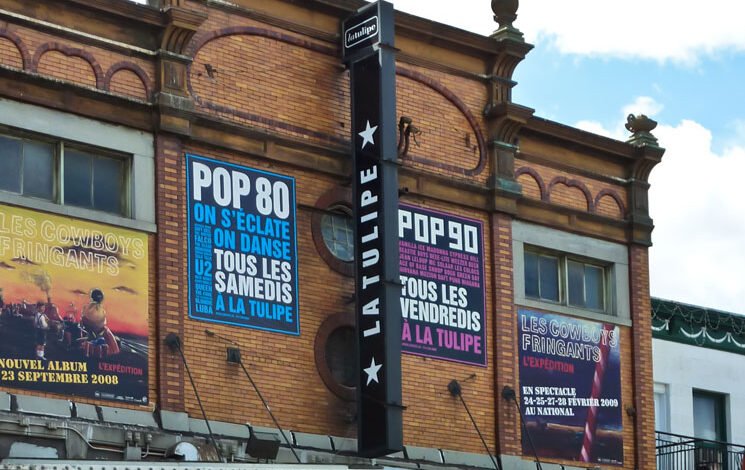Montreal Music Venue La Tulipe Ordered to Stop Disturbing Neighbour with Concert Noise │ Exclaim!

[ad_1]
Quebec’s Court of Appeal has ordered Montreal concert venue La Tulipe to prevent any noise from being heard both inside and outside the adjacent building.
Per a ruling released Monday, the performance venue housed in a century-old theatre on Papineau Avenue in the city’s Plateau-Mont-Royal neighbourhood can continue operating so long as noise does not disturb neighbours inside their building or on their terrace.
CBC News reports that the legal saga began when neighbour Pierre-Yves Beaudoin, a real estate investor, made multiple police complaints about noise levels. After Beaudoin lodged “about 20 complaints with La Tulipe staff” between August 2017 and April 2019, a request for a court injunction was made in late 2021.
The broadcaster notes that Beaudoin purchased the adjacent building in 2016, which was “mistakenly cleared by the city for residential development, despite being zoned for commercial use.” That building, where Beaudoin and 16 tenants live, is said to be “poorly insulated against sound.”
In May 2023, Quebec Superior Court ruled the venue be subject to soundproofing work to reduce noise. La Tulipe’s owners have cautioned that such renovation, complicated by the venue’s heritage status, could force the venue to close entirely.
The Court of Appeal found that the Superior Court judge erred by relying solely on Section 8 of the neighbourhood’s noise bylaw, which allows for a maximum noise threshold. The court determined that the stricter Section 9 applies, prohibiting noise from amplified sound equipment from reaching neighbouring properties.
A statement from the office of Montreal mayor Valerie Plante says the city will “do what is necessary to assist La Tulipe in its efforts to improve the soundproofing of its performance hall.” [via CBC News]
Jon Weisz, executive director of Les Scènes de Musique Alternatives du Quebec (SMAQ) — a non-profit association working with independently owned performance venues in Quebec — said in a statement that the Court of Appeal’s decision “reopens a Pandora’s box for the cultural sector.”
“Every morning, I am woken up by the incessant hubbub of the Plateau, which remains unregulated. But when it comes to music, in a city whose elected officials like to boast about its cultural effervescence, tolerance is reduced to nothing,” Weisz expressed in a release. “How is it possible that a single neighbour can close down a cultural institution? How is it possible that a single complainant can make an activity that is common in a cultural metropolis like Montreal illegal? This regulation imposes a disproportionate burden on performance halls, while neglecting the realities of urban life. Why are cultural venues the first to be incriminated in all disputes?”




